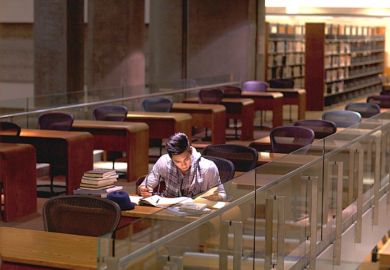Is writing an art or a craft? Should we regard writers as superior, inspired artists or as simple artisans, who give shape to their pages as one might carve wood or mould clay? Angelica Goodden’s book explores a puzzling contrast that lies at the heart of Jean-Jacques Rousseau’s work: on the one hand his immensely successful career as a versatile, if controversial, writer; on the other his diffidence towards intellectuals, and his obstinate refusal to embrace the public role of author.
In 1749, when he was suddenly inspired to compose the Discours sur les Sciences et les Arts with the aim of rescuing mankind from its impending decline, Rousseau began a literary career that led him to make successful contributions to a variety of genres, and produce not only philosophical and political essays but also epistolary novels and revealing autobiographical narratives. But the popularity of his works, instead of convincing him to adopt the posture of maître à penser that became the trademark of Enlightenment intellectuals, had the contrary effect of increasing his doubts about the position of writers in society. He perceived the emerging role of the professional author, constantly exposed to the attention and criticism of the public and sometimes victim (as he was) of the persecution of the authorities, as intolerable servitude. He became convinced that such roles generated sentiments of alienation, as writers – slaves to the whims of public favour – were gradually deprived of all freedom and satisfaction in their work.
The alternative was to treat writing as a form of craft, a modest activity done by hand (one of Rousseau’s sources of income had been the copying of musical scores), in the same blessed solitude and independence the common artisan might enjoy in his workshop. To illustrate her subject, Goodden sets Rousseau’s work in the context of the social culture in which he grew up, namely the city-republic of Geneva. There, in the fortress of Calvinism, skilled craftsmen, often refugees from religious persecution, exercised their trades in the production of fine, well-constructed objects for the European market. This example of the mechanical craftsman occupied Rousseau’s imagination, together with that of the botanist, who patiently collected and illustrated samples from nature.
The decision to choose craft and nature over art was directly connected with Rousseau’s preference for a society that rejected cosmopolitanism, wealth and uncontrolled economic progress, favouring instead small communities, rural surroundings, local activities and a simple lifestyle. Goodden cannot resist the temptation, common to many historians who study Rousseau, to project his critical attitude to modernity into contemporary political debates. Thus she imagines him as an “eager conservationist”, committed to the protection of ecosystems; as a Third World activist and preacher of the virtues of Fair Trade; as a supporter of Green and Slow movements; and as a potential militant of all manner of anti-capitalist causes.
However, even the choice of handicraft as a model was not free from contradictions: those hard-working Genevan artisans, dedicated to their trade and committed to an austere lifestyle, supplied clocks, small precision instruments, jewels and all kinds of sophisticated goods to an international luxury market, for the exclusive consumption of the wealthy few. Inevitably, therefore, they ended up serving the superfluous needs of a wasteful elite, contradicting their own religious morality and public values. At a different level, while Rousseau denounced the crowd of servile authors who inundated the reading public with masses of futile scribbling, he did not refrain from adding to his own ever-growing literary production, experimenting and testing new aesthetic paths. He liked to present his own prose as the simple, artless expression of natural sentiments, even as his pages were expertly crafted to achieve the desired effect of spontaneity.
Rousseau’s ambivalent attitude towards his own art (or craft) is not unique in the history of literature (another example can be found in that of an author he greatly admired, Michel de Montaigne); like other ambiguous authorial postures, it defies any attempt at rational explanation. While at times the analogies set forth in Rousseau’s Hand seem a bit too contrived, the book offers an original and accessible insight into this very personal aspect of the writer’s work.
Rousseau’s Hand: The Crafting of a Writer
By Angelica Goodden
Oxford University Press, 248pp, £55.00
ISBN 9780199683833
Published 31 October 2013
Register to continue
Why register?
- Registration is free and only takes a moment
- Once registered, you can read 3 articles a month
- Sign up for our newsletter
Subscribe
Or subscribe for unlimited access to:
- Unlimited access to news, views, insights & reviews
- Digital editions
- Digital access to THE’s university and college rankings analysis
Already registered or a current subscriber?





